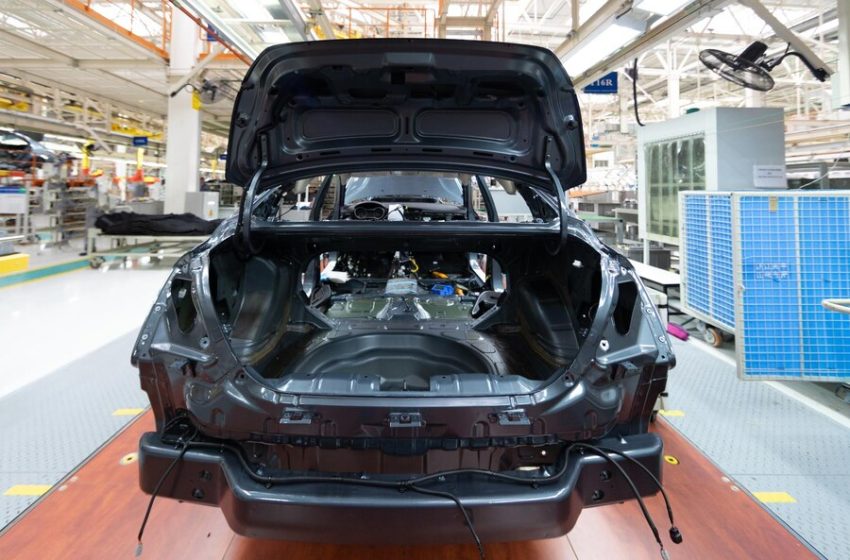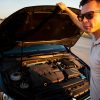Understanding the Range Rover Evoque Engine Size

The Range Rover Evoque is a stylish and versatile compact luxury SUV that has gained popularity for its sophisticated design and performance. One of the critical aspects of the Evoque’s performance is its engine size, which influences its power, fuel efficiency, and overall driving experience. This guide provides a comprehensive look at the engine sizes available for the Range Rover Evoque Engine Size, how they impact performance, and what you should consider when choosing the right engine for your needs.
The engine size of a vehicle plays a significant role in determining its performance characteristics, including acceleration, fuel economy, and towing capacity. For the Range Rover Evoque, various engine options are available, catering to different driving preferences and needs. Understanding these options can help you make an informed decision when selecting the right Evoque for you.
Overview of Engine Sizes
The Range Rover Evoque offers a range of engine sizes across different model years and trims. The choice of engine can affect everything from daily driving comfort to off-road capability. Here’s a breakdown of the engine sizes and configurations available:
-
2.0-Liter Inline-4 Engines
The 2.0-liter inline-4 engine is the most common engine size for the Range Rover Evoque. This engine is available in both petrol and diesel variants, depending on the model year and market. The 2.0-liter engine is known for its balance between performance and efficiency.
-
Petrol Version: The petrol version of the 2.0-liter engine, often equipped with turbocharging, delivers a range of power outputs. It typically produces between 200 to 300 horsepower, depending on the specific configuration and trim level.
-
Diesel Version: The diesel variant of the 2.0-liter engine offers better fuel efficiency and torque. It usually produces around 150 to 250 horsepower and is ideal for those who prioritize fuel economy and towing capability.
-
-
2.2-Liter Inline-4 Diesel Engine
For certain older models, the Range Rover Evoque was equipped with a 2.2-liter inline-4 diesel engine. This engine provided a good balance of power and efficiency, making it a popular choice for those who needed more torque for off-road driving or towing.
- Power Output: The 2.2-liter diesel engine typically produced around 150 to 190 horsepower. Its torque was higher compared to the petrol engine, making it suitable for demanding driving conditions.
-
1.5-Liter and 1.6-Liter Engines
In some markets, particularly in Europe, smaller engine options such as the 1.5-liter and 1.6-liter engines were available. These Range Rover engines were designed to offer better fuel efficiency and lower emissions, catering to those who prioritize environmental concerns and lower running costs.
- Power Output: These smaller engines generally produced lower horsepower, ranging from 120 to 150 horsepower. They were more suitable for urban driving and occasional longer trips.
Performance Implications
The engine size of the Range Rover Evoque directly affects its performance characteristics. Here’s how different engine sizes impact various aspects of driving:
-
Acceleration and Power
-
2.0-Liter Engines: The 2.0-liter engines, especially those with turbocharging, provide strong acceleration and responsive power. They are well-suited for both city driving and highway cruising, offering a good balance between performance and fuel efficiency.
-
2.2-Liter Diesel Engine: The larger 2.2-liter diesel engine offers higher torque, which translates into better acceleration, especially when loaded or towing. This engine is ideal for those who need extra power for off-road adventures or heavy loads.
-
1.5-Liter and 1.6-Liter Engines: The smaller engines provide adequate power for everyday driving but may feel less responsive compared to the larger engines. They are more focused on fuel efficiency and lower emissions.
-
-
Fuel Efficiency
-
2.0-Liter Engines: The fuel efficiency of the 2.0-liter engines varies depending on the specific configuration. Petrol versions generally offer reasonable fuel economy for a performance SUV, while the diesel versions tend to be more fuel-efficient, especially on long journeys.
-
2.2-Liter Diesel Engine: The 2.2-liter diesel engine is known for its fuel efficiency, particularly in highway driving. Diesel engines typically provide better mileage compared to petrol engines, making them a cost-effective choice for frequent drivers.
-
1.5-Liter and 1.6-Liter Engines: These smaller engines excel in fuel efficiency, often providing better mileage compared to their larger counterparts. They are ideal for urban driving and those who prioritize lower running costs.
-
-
Driving Dynamics
-
2.0-Liter Engines: The driving dynamics of the 2.0-liter engines are well-balanced, offering a smooth and responsive driving experience. The turbocharged versions provide additional power for spirited driving and overtaking.
-
2.2-Liter Diesel Engine: The 2.2-liter diesel engine enhances driving dynamics with its strong torque output, which is beneficial for off-road driving and towing. The engine’s power delivery is smooth and consistent, providing confidence in various driving conditions.
-
1.5-Liter and 1.6-Liter Engines: These smaller engines offer a more relaxed driving experience, suitable for city and suburban driving. They may not have the same level of performance as the larger engines but are adequate for everyday use.
-
Choosing the Right Engine Size
When selecting the right engine size for your Range Rover Evoque, consider the following factors:
-
Driving Needs
-
Daily Commute: If your primary use of the Evoque is for daily commuting and city driving, a 1.5-liter or 1.6-liter engine might be sufficient. These engines offer good fuel efficiency and lower emissions, making them ideal for urban environments.
-
Long Journeys: For long-distance driving or frequent highway trips, the 2.0-liter engines (especially the diesel variants) provide a good balance of power and fuel efficiency. They are well-suited for extended journeys and offer a more comfortable driving experience.
-
Off-Road and Towing: If you plan to use your Evoque for off-road adventures or towing, the 2.2-liter diesel engine or the higher-output 2.0-liter petrol engine would be more appropriate. These engines offer the necessary power and torque to handle demanding conditions.
-
-
Fuel Economy
- Consider your budget and fuel consumption preferences. Smaller engines generally provide better fuel economy, while larger engines offer more power at the expense of slightly lower efficiency.
-
Environmental Considerations
- If reducing your carbon footprint is a priority, opting for a diesel engine or a smaller petrol engine with lower emissions might align better with your goals. Additionally, newer models may include advanced technologies to improve emissions and fuel efficiency.
Maintenance and Longevity
Regardless of the engine size you choose, proper maintenance is crucial to ensure the longevity and performance of your Range Rover Evoque. Regular servicing, including oil changes, air filter replacements, and engine checks, will help keep your engine running smoothly.
-
Regular Oil Changes
Regular oil changes are essential to keep the engine lubricated and prevent wear. Follow the manufacturer’s recommendations for oil type and change intervals.
-
Air Filter Maintenance
Clean or replace the air filter as needed to ensure that the engine receives clean air for combustion. A clogged air filter can reduce performance and fuel efficiency.
-
Cooling System Checks
Regularly check the coolant levels and inspect the cooling system for leaks or damage. Proper cooling is vital to prevent engine overheating.
-
Timing Belt/Chain Inspection
If your engine has a timing belt or chain, ensure it is inspected and replaced according to the manufacturer’s schedule to prevent potential engine damage.
The engine size of the Range Rover Evoque plays a significant role in determining the vehicle’s performance, fuel efficiency, and overall driving experience. From the 1.5-liter engines focused on efficiency to the powerful 2.2-liter diesel engines designed for towing and off-road capability, each engine option caters to different needs and preferences. By understanding the characteristics of each engine size, you can make an informed decision that aligns with your driving requirements and lifestyle.
Whether you prioritize performance, fuel economy, or off-road capability, the Range Rover Evoque offers a range of engine options to meet your needs. Regular maintenance and care will ensure that your Evoque continues to perform at its best, providing a satisfying and enjoyable driving experience.

